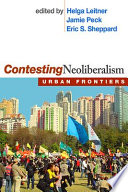On Progressive Neoliberalism From A Discursive Perspective
Progress As An Empty Signifier

نبذة عن الكتاب
Many critical thinkers agree that it is the inequalities and injustices of the global neoliberal order which have brought about “the populist explosion” (Butler, 2016; Harvey, 2018; Judis, 2016; Mouffe, 2016; Taguieff, 2016; Žižek, 2018).1 All the latest populist developments2 – from the left-wing populism in Greece, Spain, or Italy to the right-wing populism in France, Austria, or Finland – are seen from this perspective “as if masses of people throughout the world had stopped believing in the reigning common sensethat has underpinned political domination for the last several decades,” as Nancy Fraser puts it (2019, p. 8). An important question then arises: what made the ideology of neoliberalism so successful that it assumed the role of the “common sense” reigning globally? Contemplating this question, Fraser offers a provocative solution. According to her, a major contributor to the hegemony of neoliberal policies, at least in Western societies, was the formation of “progressive neoliberalism” – a hegemonic bloc combining “an expropria









